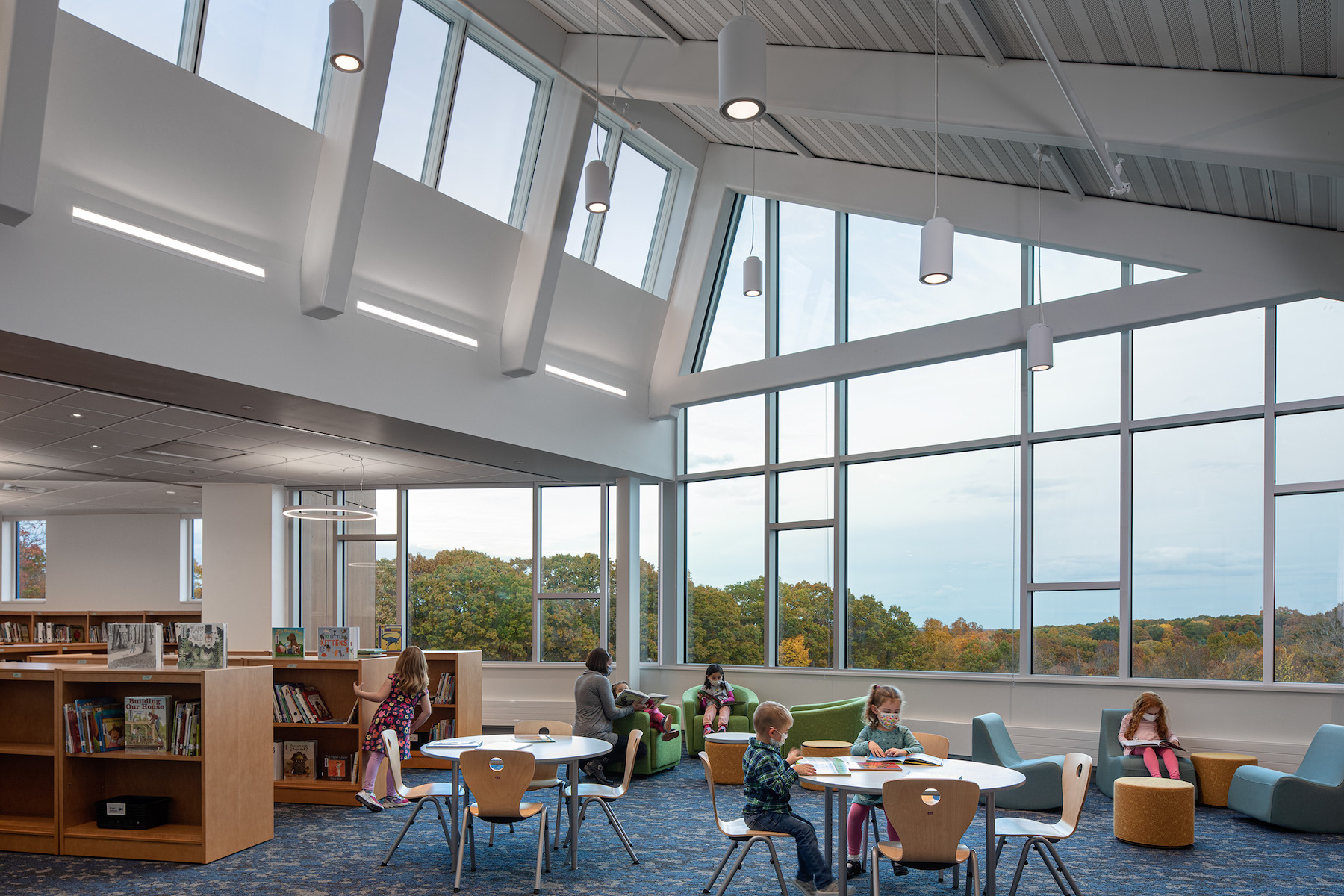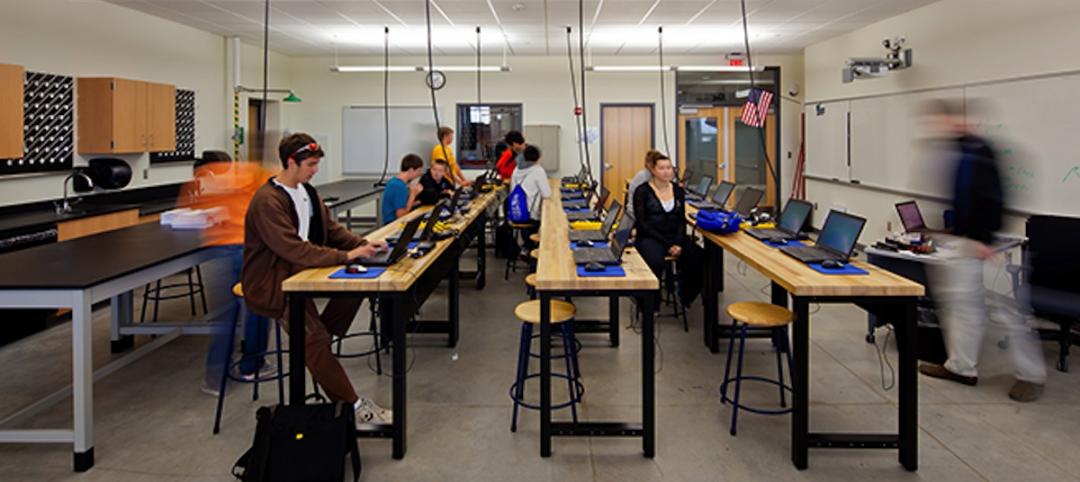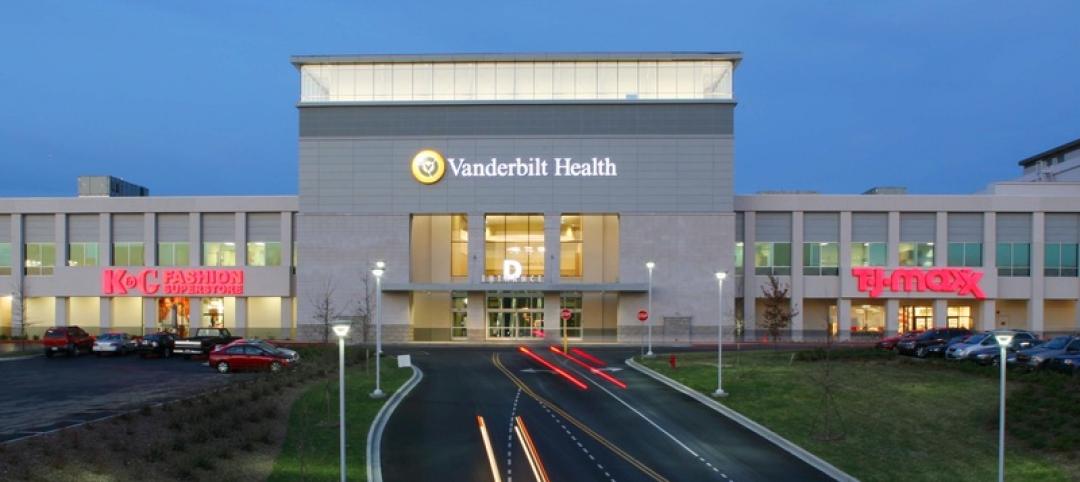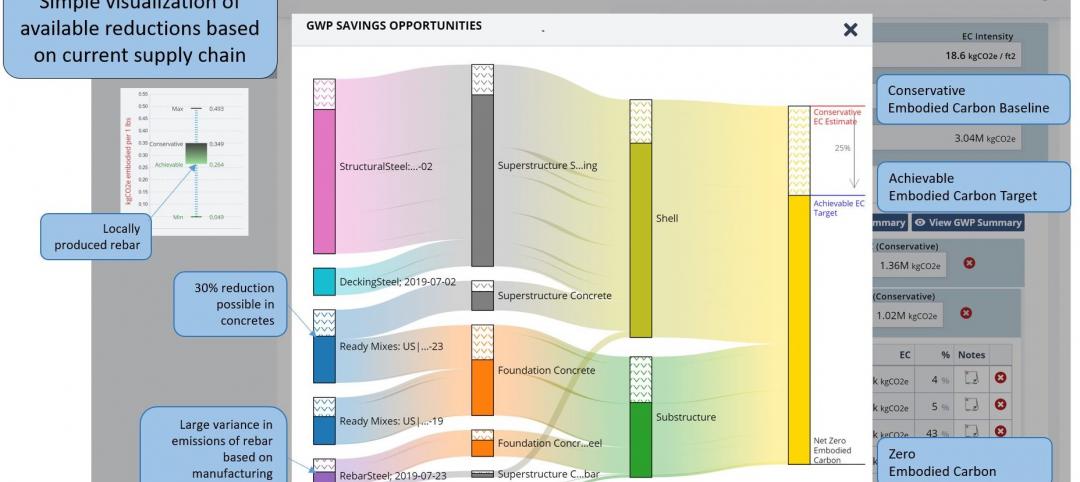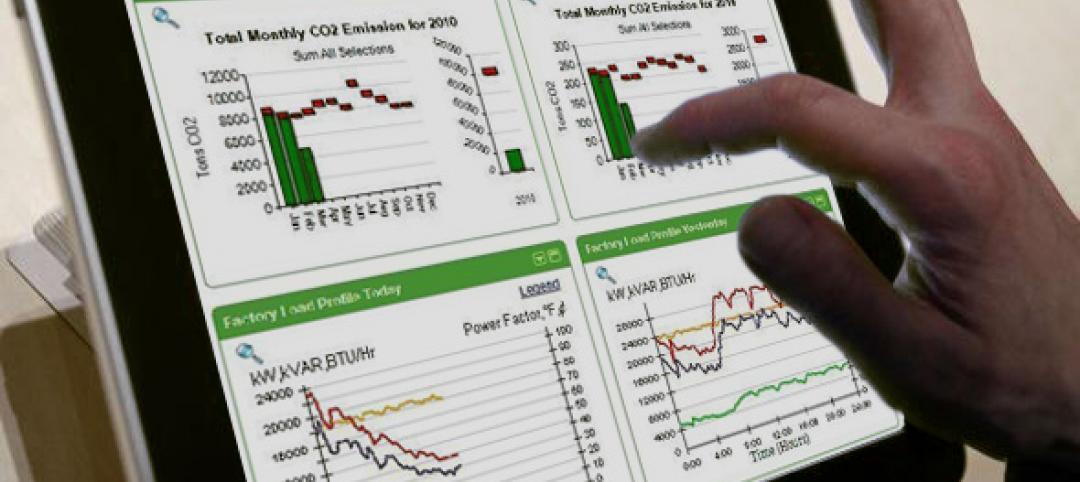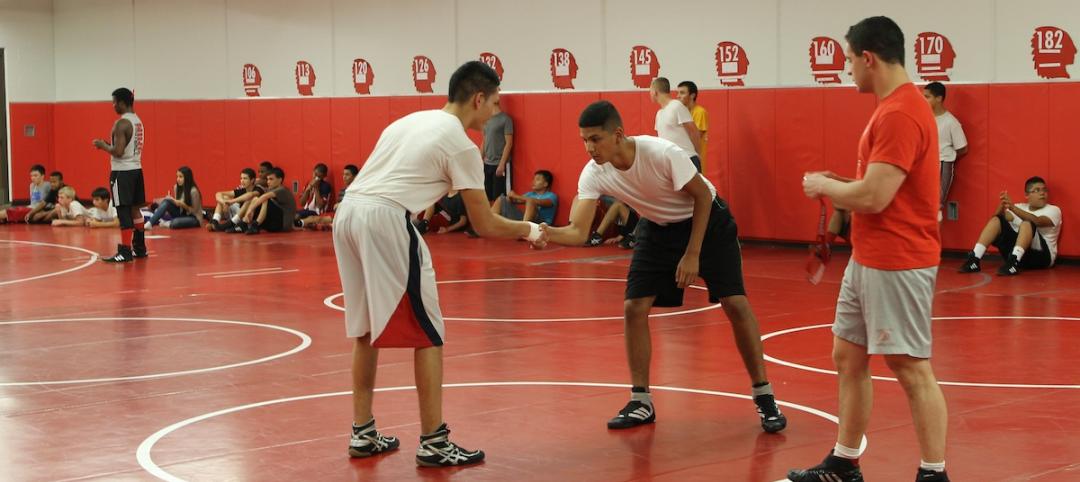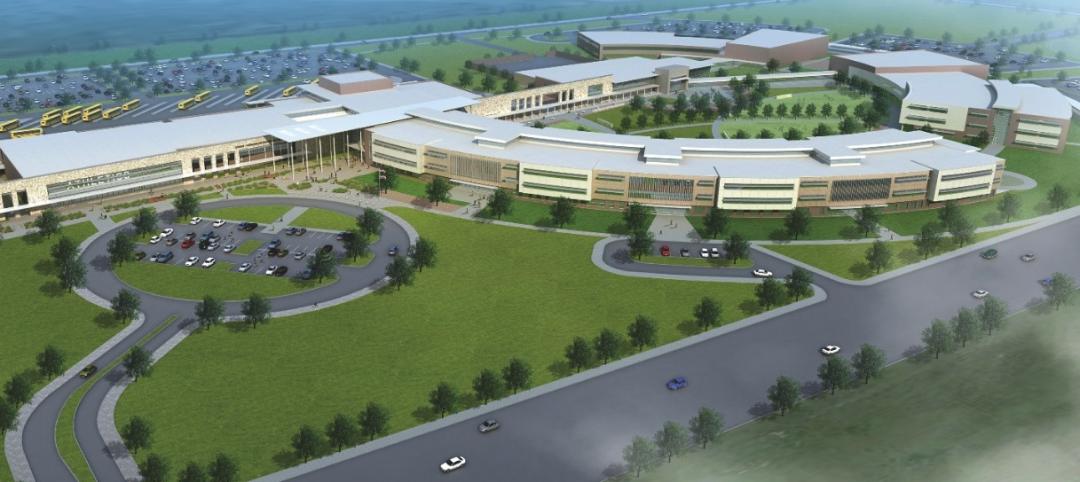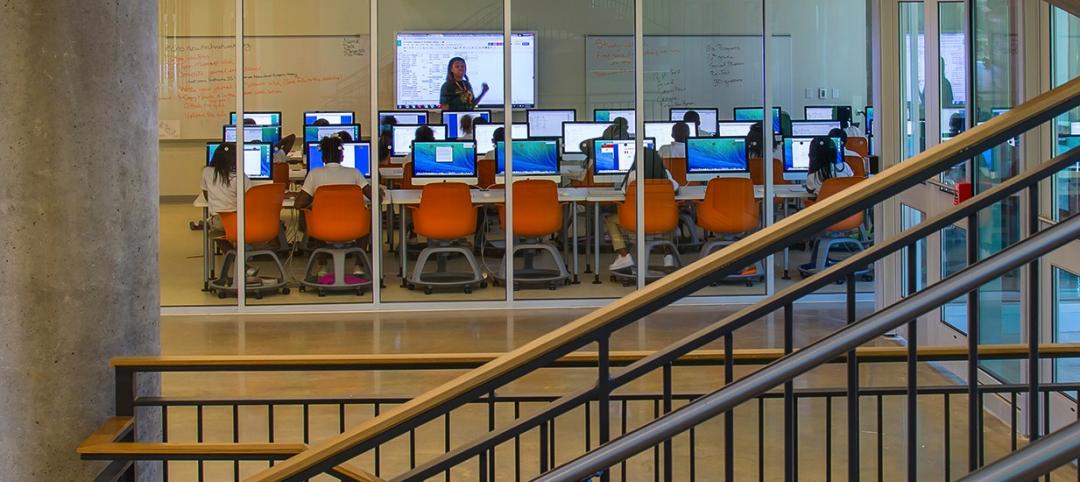Yesterday, the town of Westborough, Mass., opened the 70,242-sf Annie E. Fales Elementary School, which is the state’s first net-positive energy public school.
The two-story building replaces the original school—also named after a beloved school teacher who spent most of her 50-year career in Westborough—that’s on the same premises and which closed its doors after the town determined that new construction was a better option than trying to upgrade and remodel a 58-year-old building for a growing local population.
HMFH Architects designed the new school, which accommodates 400 kindergarten-through-3rd grade students, with five classrooms per grade plus one float classroom. It was built by Gilbane Building Company. The project cost was $56.8 million, of which $45 million was for construction.
This all-electric school consumes less than two-thirds of the energy used by a comparable code-compliant building. Its sustainable features include triple-glazed windows, roof and wall insulation that’s 40 percent above code requirements, 40 660-ft-deep geothermal close-loop wells, a 25,000-sf 508-kW solar PV array that’s integrated into the exterior architecture, LED lighting, high-efficiency mechanical systems designed to improve air quality, and a building management system that monitors and controls the mechanicals and lighting.
The ground-floor public spaces—including the cafeteria, gym, and administrative offices—are built into the hillside to reduce heat loss and gain through exterior walls. The second-floor teaching spaces have a north-south orientation that allows for windows and skylights to provide natural light and views to the outdoors.
AN AMBITIOUS CO2 REDUCTION GOAL
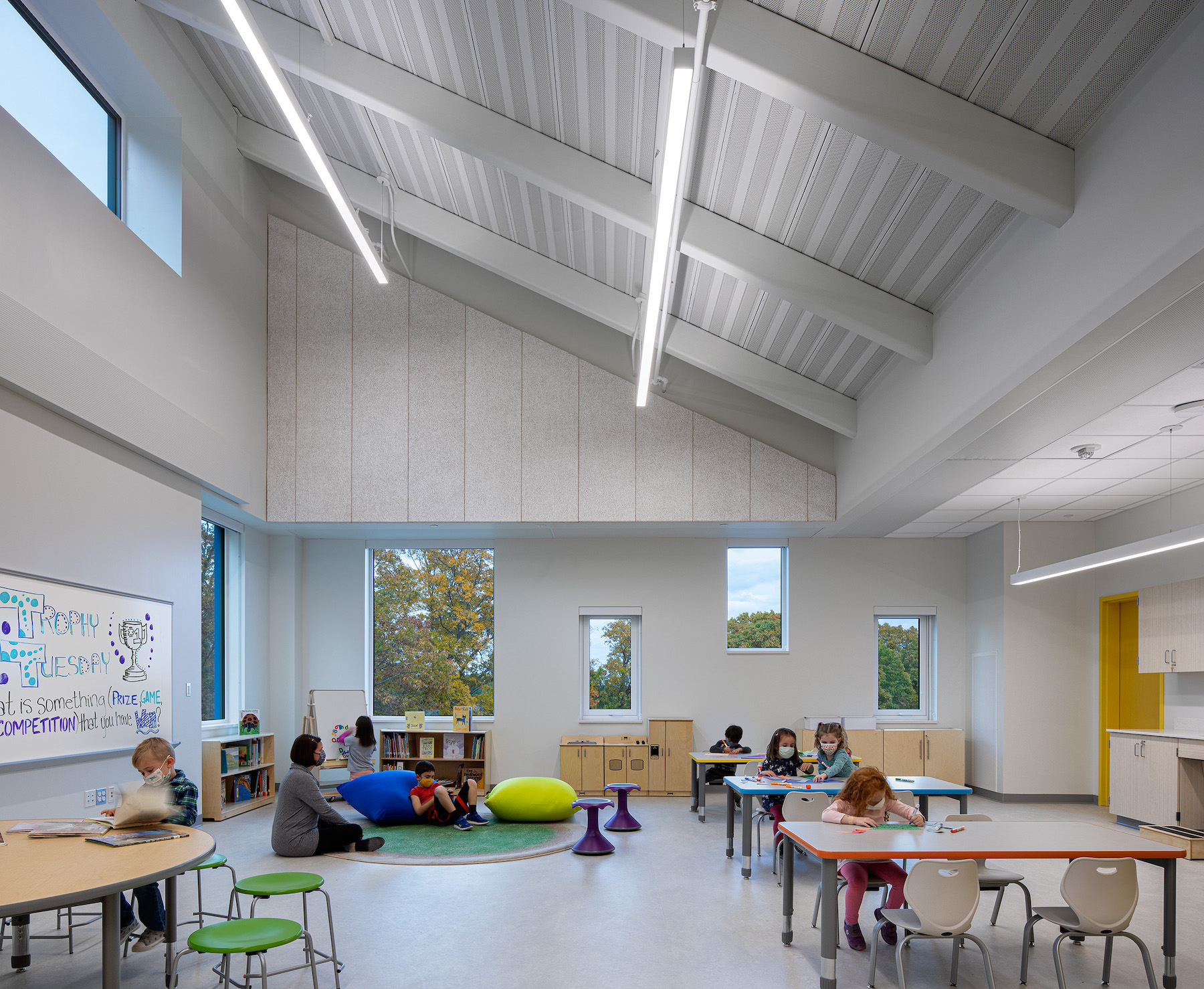
The school is expected to generate 10 percent more energy than it uses, which the town will return to the electric grid. Westborough has set a goal to be carbon emissions free by 2035. The town’s environmental stewardship “encouraged the design and construction management team to aim high and go beyond a net-zero energy goal and create a school that will inspire other communities to do the same,” said Julia Nugent, AIA, Principal and Project Leader with HMFH Architects.
The school, which is shooting for LEED Gold and LEED Zero certifications, is a learning tool itself, with exhibits and visuals to educate students and visitors about the natural environment and sustainable practices.
The Vertex Companies was the town’s project manager for the new school, which is the second K-12 school that Gilbane has constructed for Westborough, the first being a 110,000-sf Sarah Gibbons Middle School, completed in 2017.
Related Stories
K-12 Schools | Mar 18, 2015
The new Vo-Tech: Transforming vocational workshops into 21st century learning labs
It’s no secret: the way students learn today is different. But facilities are adapting to the increasing demands of technology, collaborative learning, and project-based instruction.
Retail Centers | Mar 10, 2015
Retrofit projects give dying malls new purpose
Approximately one-third of the country’s 1,200 enclosed malls are dead or dying. The good news is that a sizable portion of that building stock is being repurposed.
K-12 Schools | Mar 2, 2015
BD+C special report: What it takes to build 21st-century schools
How the latest design, construction, and teaching concepts are being implemented in the next generation of America’s schools.
Codes and Standards | Mar 2, 2015
Nevada moves to suspend prevailing wage rules on school projects
The Nevada Senate approved a bill that would suspend prevailing wage rules on school projects.
K-12 Schools | Mar 1, 2015
Are energy management systems too complex for school facility staffs?
When school districts demand the latest and greatest, they need to think about how those choices will impact the district’s facilities employees.
K-12 Schools | Feb 26, 2015
Should your next school project include a safe room?
Many school districts continue to resist mandating the inclusion of safe rooms or storm shelters in new and existing buildings. But that may be changing.
K-12 Schools | Feb 26, 2015
Construction funding still scarce for many school districts
Many districts are struggling to have new construction and renovation keep pace with student population growth.
K-12 Schools | Feb 26, 2015
D.C.'s Dunbar High School is world's highest-scoring LEED school, earns 91% of base credits
The 280,000-sf school achieved 91 points, out of 100 base points possible for LEED, making it the highest-scoring school in the world certified under USGBC’s LEED for Schools-New Construction system.
K-12 Schools | Feb 25, 2015
Polish architect designs modular ‘kids city’ kindergarten using shipping container frames
Forget the retrofit of a shipping container into a building for one moment. Designboom showcases the plans of Polish architect Adam Wiercinski to use just the recycled frames of containers to construct a “kids city.”
University Buildings | Feb 23, 2015
Future-proofing educational institutions: 5 trends to consider
In response to rapidly changing conditions in K-12 and higher education, institutions and school districts should consider these five trends to ensure a productive, educated future.


